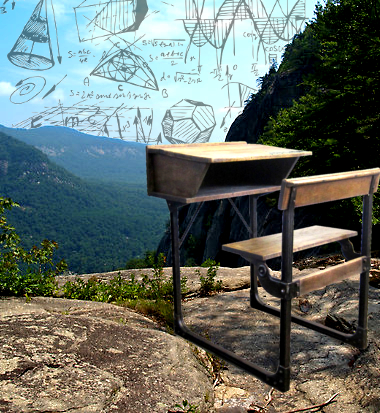HSC switching to formal physics
 The New South Wales Higher School Certificate syllabus has had its biggest overhaul in 16 years.
The New South Wales Higher School Certificate syllabus has had its biggest overhaul in 16 years.
The NSW Education Standards Authority (NESA) says it wants a renewed focus on “rigour, thoroughness and depth” in classic learning areas like maths and English, as well as major changes to make year 12 science and history topics more complex.
NESA chair Tom Alegounarias says it is a “major shift”.
“We reviewed the whole HSC, we looked at what the community is demanding for now and in the future,” Mr Alegounarias said.
“The major shift is towards greater depth, rigour, and mastery of content learning.”
The latest version of the syllabus is accessible here.
The new syllabus will introduce more complex topics across the maths and science syllabuses in response to criticism that students were ill-prepared when they reached university.
The marking of higher level subjects will be conducted relative to marks in lower level subjects, creating a scale that can reward achievement at higher maths levels.
This should prevent capable students from intentionally taking lower-levels of mathematics study in order to gain a higher Australian Tertiary Entrance Rank.
“What we want is students to study at the right level of the course, and at the highest possible level of study,” Mr Alegounarias said.
“That's the rationale, that's why we're putting all the courses on a common scale.”
NESA is still in consultation over the new maths curriculum.
The overhaul will include significant changes to the physics syllabus, focusing it on the mathematical bases of the science.
The previous model had been criticised for asking student to write essays on topics like the history of physics, which did not do enough to prepare them for university-level studies.
“We think physics has been diluted,” Mr Alegounarias said.
“There was an emphasis in previous generations of emphasising the social context in which you studied physics. This is a return to the science of physics.”
The English and history syllabuses will have a renewed focus on text, language, writing and vocabulary, abolishing combined module areas including Journeys, Discovery and Belonging.
The history syllabus will now incorporate an “overarching narrative” about modern liberalism and modern democracies, offering fewer topic options but in greater depth.
Students will keep Asian history or a non-Western history module, while specific Aboriginal history modules will continue.







 Print
Print